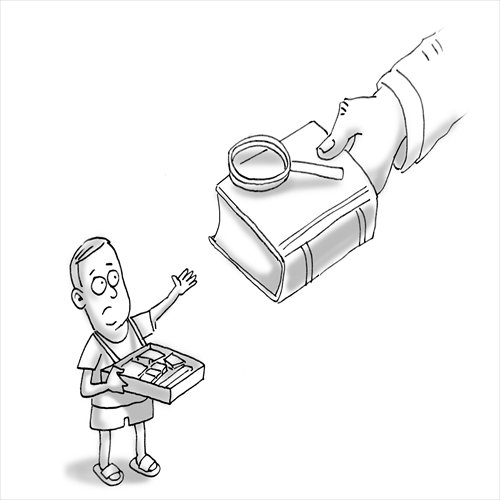HOME >> OP-ED
Dodgy business hampers belt, road program
By Ding Gang Source:Global Times Published: 2015-7-29 23:53:02

Illustration: Liu Rui/GT
Over 150 illegal Chinese loggers were given severe sentences by a Myanmar court on July 22. Most of them were sentenced to 20 years in prison, and another two underage loggers were sentenced 10 years.The Chinese embassy in Myanmar soon asked the courts to reconsider the heavy verdict with a full understanding of these people's conditions and argued that after a proper conclusion, these loggers should be returned to China as soon as possible.
This incident mirrors the problems China has undergone in recent years after adopting a "going out" strategy. They could take quite a toll on the "One Belt, One Road" initiative, a grand multinational project being promoted by China currently.
There are two versions of the "One Belt, One Road" project, the government-led one and the civilian-initiated one.
The governmental version features planned investments for joint projects, large infrastructure constructions and enhanced interconnection with neighboring countries that can benefits from China's development.
There is also a non-governmental version, characterized by a large number of Chinese businessmen and labor swarming into neighboring markets through different channels. Among them, there are a lot of migrant workers working as miners and loggers. Recent years have seen a dramatic increase of these people.
When I was stationed in Southeast Asia a couple of years ago, I went to quite a few small commodities markets in Thailand, Laos, Myanmar and Cambodia. Most of the goods sold in these markets, such as small home appliances, hardware and mobile phones, were made in China. I also encountered some Chinese mine owners in Laos and Cambodia.
As for locals, their impression of China is directly connected with these Chinese-made products. Although many commodities are high-quality and sold at low prices, cheap and shoddy goods are rife in the local markets. Some Chinese mine owners do not have complete permits before they start business. Some acquired the permits under the table. A few projects have even damaged the local environment.
These problems have caused some inconvenience to the advancement of the government-led "One Belt, One Road" initiative. They will continue to cause trouble in the future.
In order to realize better connectivity in the industrial chain and reduce costs, more Chinese companies will move their factories and relocate them in some neighboring countries. The industrial transfer will facilitate these countries in the development of manufacturing. But when a mass of cheap products flock into the neighboring markets, be they through legal or illegal channels, they will hinder Chinese companies in these markets.
Besides, some workers, like loggers and miners, who cross the border illegally, will also jeopardize the confidence in and potential for more cooperation between Chinese companies and their partners in these countries. The merits of the "One Belt, One Road" initiative could be offset by these negative impacts.
Although the "One Belt, One Road" initiative aims at multinational cooperation, it still needs a whole set of accompanying plans, or it can't be pulled off.
Some experts suggest that the authorities should take more responsibility in informing these small and medium-scale companies about national policies and arrangements about foreign trade. More restrictions should be imposed on illegal trading, mining and logging. The authorities should also provide more counseling services to these companies who have already entered foreign markets.
It is time for China to regulate the wave of business going over its borders. The government should offer proper management and guidance to these companies that are eager to have access to the international market. This should be an indispensable part of the "One Belt, One Road" initiative.
The author is a senior editor with People's Daily. He is now stationed in Brazil. dinggang@globaltimes.com.cn. Follow him on Twitter at @dinggangchina
Posted in: